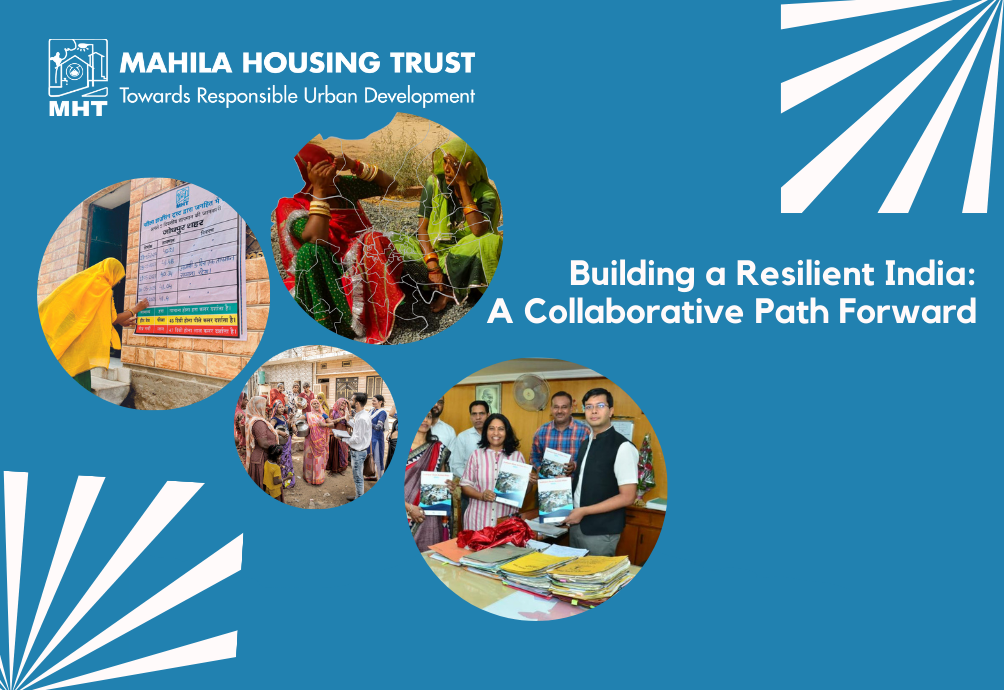
Building a Resilient India: A Collaborative Path Forward
As we mark two decades of the National Disaster Management Authority (NDMA), it’s inspiring to reflect on the strides India has made towards a more resilient future. The NDMA’s commitment to proactively address disasters has made India a global leader in resilience, with ambitions to meet the Sendai Framework targets by 2030. This goal isn’t just about disaster response but also about fostering resilience across communities, especially among vulnerable populations who are most affected by natural calamities.
At Mahila Housing Trust (MHT), we’ve seen firsthand how community-driven resilience can transform lives. For over 25 years, MHT has empowered women in low-income communities to be at the forefront of climate and disaster resilience. Through initiatives like our community-based climate resilience models and energy-efficient livelihoods, we’re bridging the gap between policy aspirations and grassroots action. Our involvement in citywide initiatives, such as Ahmedabad’s Heat Action Plan, showcases our commitment to creating localized solutions for urban heat stress, a growing issue exacerbated by climate change.
One of the standout aspects of NDMA’s mission is its emphasis on inclusivity. The Aapda Mitra program, with its 100,000-strong volunteer force, highlights the importance of community-led disaster response. At MHT, we echo this approach by training women as climate-resilient leaders within their communities, enabling them to conduct climate risk assessments and implement sustainable solutions. These efforts not only improve safety and reduce vulnerabilities but also empower women to take control of their communities’ resilience strategies.
Our projects, such as the Jodhpur Heat Action Plan, bring together government entities, community action groups, and local citizens to create safer, more sustainable cities. Through cooling solutions, legal access to electricity, and renewable energy options, we support low-income communities in adapting to climate challenges. Such initiatives align with India’s broader resilience objectives and demonstrate how targeted, community-focused efforts can contribute to national resilience goals.
India’s role on the global stage, underscored by initiatives like the Coalition for Disaster Resilient Infrastructure, inspires us to think globally and act locally. The philosophy of Vasudhaiva Kutumbakam—that the world is one family—resonates deeply with MHT’s mission. By fostering collaboration and leveraging community knowledge, we are working to create a future where resilience is not just a goal, but a reality for all.
As we move forward, MHT remains committed to supporting the NDMA’s vision of a resilient India. By amplifying the voices of women, facilitating community participation, and promoting sustainable practices, we’re building the foundation for a safer, more inclusive future.
